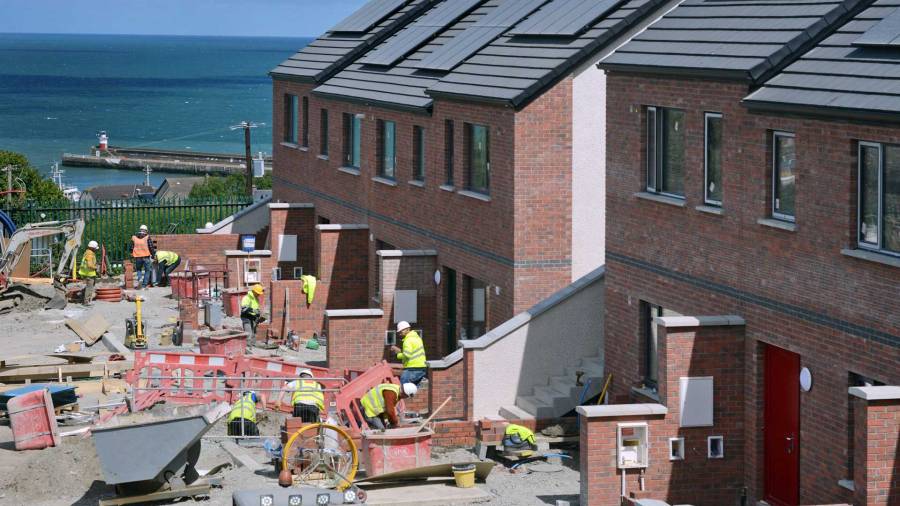New dawn
Affordable cost rental homes are a potential game changer for Irish housing

GROWTH, DEVELOPMENT & REGENERATION
Image: Istock

Declan Dunne
CEO, Respond
The Irish Government has, for the first time, introduced a funding scheme in its Budget 2021 to finance the provision of affordable cost rental homes. This is a significant development, which has the potential to transform the Irish housing landscape. Prior to this, there was a limited number of affordable cost rental pilots, but no nationally funded model to provide affordable cost rental housing.
A new form of housing tenure
Rents for cost rental homes are calculated based on the costs of delivering, managing, and maintaining the home. Respond has been advocating for a sustainable and replicable model to deliver affordable rental homes and we believe this could be a new dawn for the sector. It is hoped this decision, subject to the full detail, will provide a new form of housing tenure, in addition to social, private rental and private purchase housing.
The combination of social housing and affordable rental homes, along with other tenures, has the potential to achieve the long-sought goal of integrated communities and neighbourhoods. This demonstrates the positive role research and advocacy can make in the development of evidence-informed solutions.
Ireland’s housing crisis
The housing crisis in the Republic of Ireland has, at its core, a crisis in housing affordability with negative impacts on health, transport, and the economic sustainability of the country.
In 2018, the Economic and Social Research Institute found that 16% of households spend more than 30% of their net income on housing, with this figure rising to 70% for the lowest quartile of the income distribution.
In numbers
- 16% of households spend more than 30% of their net income on housing
- This figure rises to 70% for those in the lowest income quartile
Source: Economic and Social Research Institute, 2018
In numbers
- 16% of households spend more than 30% of their net income on housing
- This figure rises to 70% for those in the lowest income quartile
Source: Economic and Social Research Institute, 2018
This year, with the advent of COVID-19, the most severe impacts have been on those who were already vulnerable: older people; people with pre-existing health conditions; and those without secure homes.
The lack of affordable housing has the greatest impact on people on low incomes and living in poverty. Therefore, a more affordable rental option for people who do not qualify for social housing but will never be able to afford to purchase their own home, is required. This will also allow for greater housing choice.
Approaches to the provision of affordable rental homes
Internationally, there are two approaches to providing affordable rental homes:
- Cost rental housing: rents are calculated based on the costs of delivering, managing, and maintaining the home.
- Affordable rental: sets rents below market rent, where tenants pay a lower percentage of their income.
Cost rental pathway
Respond, as an Approved Housing Body, is experienced in this field. Founded in 1982 we have 10,378 tenants living in 4,520 homes across the 26 counties that we either own or manage – of these there are 4,250 Respond social tenancies.
In addition, we have been working with our partners in delivering the first (pilot) cost rental pathways project in Enniskerry Road, Dublin. This is an innovative collaboration between Dún Laoghaire-Rathdown County Council, the Housing Agency, the Housing Finance Agency, the Department of Housing, Local Government and Heritage, Respond and Tuath Housing Associations. This project will include 50 cost rental homes and 105 social homes that will be completed in 2021.
“A more affordable rental option for people who do not qualify for social housing but will never be able to afford to purchase their own home, is required”
The consensus is that Budget 2021 is a good housing budget, particularly in the COVID-19 context, with the overall investment in housing of €3.1 billion, the focus on new builds, and a budget line for retrofitting.
What is particularly exciting is the new ‘Cost-Rental Equity Loan Facility’ (CRELF) of €35 million. This will allow Approved Housing Bodies like Respond to borrow up to 30% of the cost of cost rental homes from the state, resulting in the delivery of homes at significantly below market rents.
We are looking forward to engaging with the Minister for Housing, Local Government and Heritage, Darragh O’Brien T.D., and his department further on this. It has been shown all too clearly in recent times how having a safe, secure place to call home as part of a vibrant, diverse community is critical to the quality of life and wellbeing of individuals and families.


